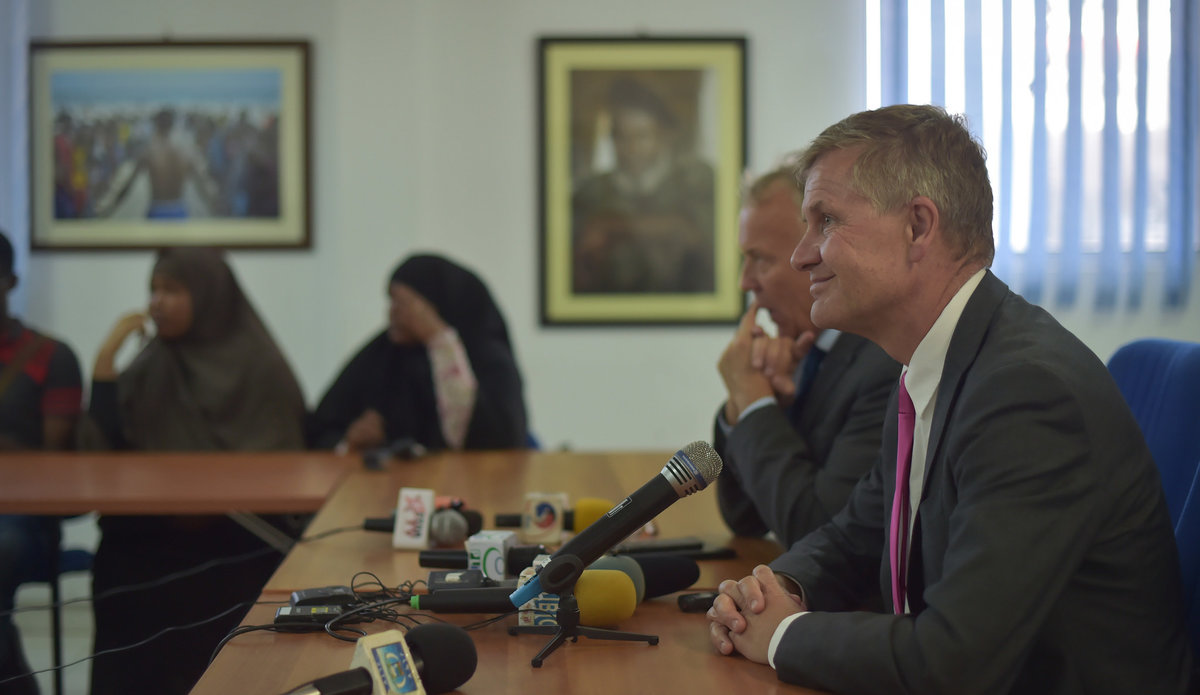Head of the UN Environment visits Somalia to assess impact of drought on the environment
Mogadishu - The Executive Director of the United Nations Environment Programme, Mr. Erik Solheim, visited Somalia to assess the extent and impact of the prevailing drought on the environment and to discuss support for the new Somali government on other environmental issues, including the charcoal trade.
Mr. Solheim met with senior Somali federal government officials, including Prime Minister H.E. Hassan Khayre and Deputy Prime Minister Mahdi Mohamed Guled.
Their discussions focused on a broad range of issues, including supporting initiatives by the Federal Government of Somalia in environmental conservation and use of renewable energy, to mitigate the effects of climate change.
“Environment is a very central issue to any Government and in particular it is central to Somalia because drought, as witnessed here over the last few months, is linked to climate change,” Mr. Solheim told local journalists during a media briefing.
He also noted that a reverse in widespread deforestation will be beneficial to the economy and the Somali people
“Equally critical,” Mr. Solheim emphasized, “is the need to tap into Somalia’s vast solar and wind energy resources, for the production of renewable energy.”
Another central theme of the discussions with Somali senior government officials was the manner in which the correct use of water and energy can contribute to stability, job creation, and economic growth.
The Special Representative of the UN Secretary-General (SRSG) for Somalia, Mr. Michael Keating, underscored the importance of natural resource management, which he said is central to conflict resolution, peace, stability and economic growth.
“Competition for natural resources, if unregulated, can result in more conflict and more disputes, which in turn increase political instability,” he noted.
“The connections between poor natural resource management and conflict are increasingly well understood. What is less clear is how good natural resource management can contribute to peace and stability,” SRSG Keating explained.
Concluding his visit, Mr. Solheim urged the federal government of Somalia to make environment conservation central to its agenda. He also pledged the support of United Nations Environment Programme to protect the country’s fish resources, through the support of initiatives aimed at ending illegal fishing by international vessels in Somalia’s waters.
This was Mr. Solheim’s first visit to Somalia, after his appointment as Executive Director of the Nairobi-based United Nations Environment Programme in 2016.
 UN
UN





